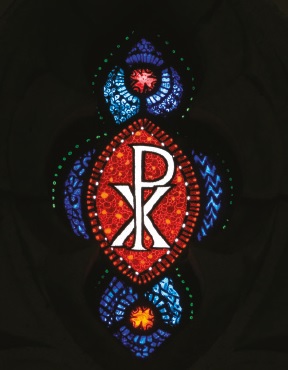Searching our heart in prayer, we can identify in different ways with all the characters, all the teachings, all the good things, all the bad things, in Scripture. Depending on where we are in life, this sense of identity shifts, even within one text. For example, it may be that, as we read the Parable of the Prodigal Son, we one day identify with the son, and on another day with the father. Sometimes, perhaps, we are more like the ungrateful brother who grumbles to his father. So, Scripture certainly presents to us like a mirror held up to our faces – we see ourselves in those characters and stories. Our prayerful reading of the holy Gospels presents us with the challenge to reset our own self-perception.
When we wonder about the son’s wasteful life, his lack of care for his family, for his father’s gift of inheritance, for his own wellbeing, we can see our own lack of regard for others and for our self. We are all broken to some degree, yet sometimes, depending on our life situation, this brokenness has more influence on our choices and decisions than at other times. When we see the actions and attitudes of this wayward and wasteful son, and place them in synopsis with our own wastefulness, we are being presented with the grace of an opportunity – an opportunity to change. Yes, this story of brokenness – that of the son – is framed within the context of a loving and waiting father. So, as we read on and learn of the unconditional love bestowed by the father, we are being invited by the Holy Spirit to make that meaningful to us. That father is waiting for us, too. We may have the wrong measure of him, but he will run out to us and throw the best robe around our dusty shoulders. We do not ‘know’ love, not truly as the father does. We all need this love. It is the love of eternity, wherein we are restored, and through which we come to be the children of God. The relationship between father and son in this Gospel passage is a window into our relationship with God – and it is a story we all need to hear.
So, that’s how we might ponder on the son – placing ourselves into his perspective, to some degree. But what about the father? Is Scripture not inviting us to look also at ourselves through the prism of this man? The father is the embodiment of God in this passage – and we are, after all, made in God’s image. When is it that we are waiting by that window of opportunity for the return of those who have wronged us? When do we give ourselves so fully that it requires a truly painful redaction of our own ego? At the heart of the father’s actions is God’s action of love to a broken people. We, His sons and daughters, are offered forgiveness and love – from the Cross Christ not only forgave His persecutors but found excuses to do so – ‘Forgive them, for they do not know what they do.’ Perhaps the father has a message for us, too. Maybe he is asking us to take his place for a while by that open window, so that we can wait for the opportunity to forgive, and to love.
The poor brother, too, who felt slighted by his father, we must sometimes embody this character. It is easy to feel under-appreciated. His was a selfish mindset, and therein we see ourselves clearly, because we can all be selfish. He was thinking of himself. He was looking not at the return of a sibling once dead, but at why he hadn’t been given the same feast after all the work he had done. He went down the tortuous, bitter road of comparison. The father pleaded with him, just as he pleads with us to see the light. This is how much He wants us to turn to Him in love, to accept Him. The God of our Fathers, pleading with us, broken humanity, because of love. We are never told in the Gospel passage whether the Son accepted the words of his father and joined in the feasting, reconciling with his brother. This open-ended tail of the story is another prompt from the Holy Spirit to us who can so often be like the ungrateful brother. Where are we going to take the words of the Father? Yes, we might hear the pleading, the words of love – but it is still up to us to carry them forward into the new life of love and peace. What did that ungrateful brother do? And what shall we do, who are so often slighted by others and unprepared to hold out to them the olive branch of reconciliation? That is the uncertain part. But we know what IS for certain, and that is God’s message of love, His care towards the littlest in the Kingdom. It is the epitomy of fatherhood. So we can use this as our yardstick, as we listen for the voices of the son, the father and the brother inside us, and ask Him to give us the grace to transform into children of God. We do so, of course, by love.
